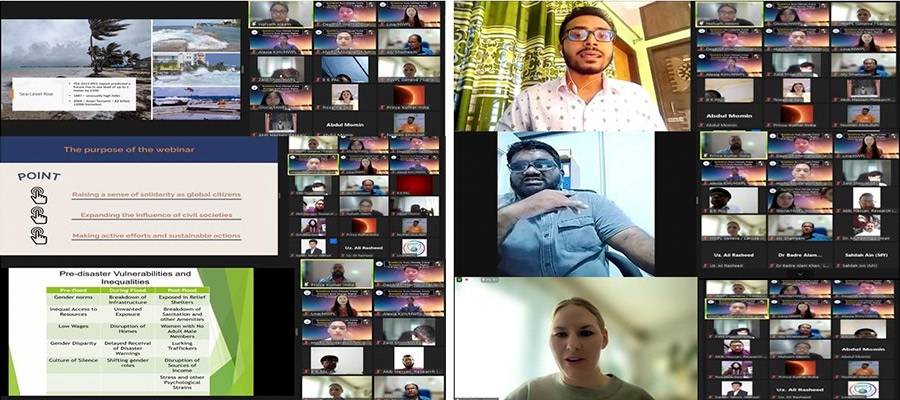Since 80 percent of its
expansive territory lies less than a meter above sea level, about 500,000 residents,
who are almost all citizens, are very vulnerable to climate change. Half of the
atolls, which are home to Maldives natives, have already reported coastal erosion. And in inclement
weather with strong winds, seawater enters even in the densely populated areas,
causing frequent flood damage.
Also, more than 90 percent of the indigents live on the outer atolls, who are
most completely depend of rain or desalination systems.
According
to the Associated Press (AP) from Malé (Maldives’
capital), H. E. Ms. Aminath Shauna, the Maldives’ Minister of Environment,
Climate Change and Technology, said “The difference between 1.5 degrees and 2
degrees, for us, really is a death sentence.”
In order to overcome the growing impacts of climate crisis every
year, Maldives spends more than 30% of the national budget in response to many
climate disasters such as desalination, irrigation, flooding, coastal erosion,
and sand loss.
But, because of economic
recession caused by COVID-19 and high climate risks, Maldives is unable to
access affordable loans with low-interest rates, making the nation’s financial
situation even more difficult. The UN has created funds specifically to help
climate-stressed countries, but the fund takes long to be provided.
#DPCW_1038 #PEACE_WORLD
#NO_WAR #CLIMATE #ASSESSMENT #WARP_OFFICE #IWPG
For this reason, countries in the climate
crisis, including Maldives, are provided with advanced countries in the form of
loans, not donations and will remain debt to be repaid someday.
Recently,
the Maldives government came up with a land development project to ease
population overcrowding. However, according to Climate Home News, an
independent environmental media, when the project is pushed ahead, the Maldives
government’s Environmental Impact Assessment (EIA) results lead to “significant
irreversible damage” to lagoons and coral reefs. This is based on the
deterioration of beach erosion caused by breakwaters to build port facilities
and hotels on the beach and protect the structures.
Eventually, Maldives should not only consider the right to life,
the right of residence, and the environmental rights from the climate crisis,
which is sea level rise, but also think over comprehensive questions about (on)
protection of human rights including economic bloc. Also, Maldives as well as
maritime states and the whole world should recognize the current situation,
faced with the climate crisis and get out of Bystander’s position.
https://www.hwpl.kr/language/en
▲
▲
▲






No comments:
Post a Comment